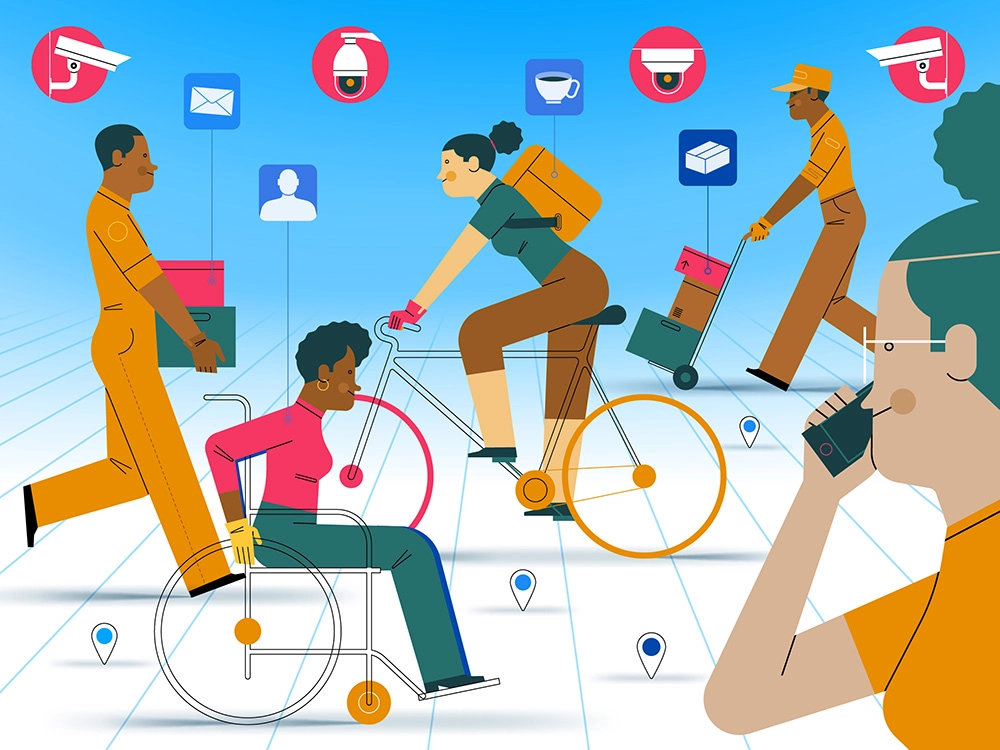IndustriALL's AI Policy: Safeguarding Workers in the Digital Age
IndustriALL's AI policy paper advocates for fair AI integration, prioritizing workers' rights and shaping a just digital transformation in industries.

IndustriALL's AI Policy: Safeguarding Workers in the Digital Age
IndustriALL Global Union, a major federation representing millions of industrial workers worldwide, has unveiled a comprehensive policy paper on artificial intelligence (AI) aimed at securing workers’ rights and shaping a fair digital transformation in industries. Released in early October 2025, this significant policy initiative addresses the rapid integration of AI technologies in industrial sectors and seeks to guide governments, employers, and workers' organizations in managing AI’s impact on the workforce.
Background: The Rising Role of AI in Industry and Labour Concerns
AI is transforming industrial operations globally, automating complex tasks and enabling new efficiencies in manufacturing, energy, and resource extraction. The European Union, for example, recently launched its Apply AI Strategy, investing over €1 billion to embed AI as a core production factor across strategic sectors. However, this technological shift brings challenges, including job displacement, workplace surveillance, and ethical concerns over decision-making systems.
Against this backdrop, IndustriALL’s policy paper emerges as a critical instrument advocating for worker-centred AI governance. It emphasizes the importance of balancing technological progress with human rights, social dialogue, and equitable labour practices.
Key Features of IndustriALL’s AI Policy Paper
The policy paper outlines IndustriALL’s vision for AI that respects and enhances workers’ rights rather than undermining them. Its central pillars include:
-
Protecting jobs and promoting just transitions: Recognizing the potential for AI to replace certain roles, the paper advocates for proactive retraining and upskilling programs, ensuring workers can transition into new roles created by AI-driven industries.
-
Ensuring transparency and accountability: It calls for clear rules on AI system deployment in workplaces, including transparency on how decisions affecting workers (e.g., hiring, performance evaluation) are made by AI algorithms.
-
Establishing ethical AI standards: Industrial AI applications must adhere to ethical standards that prohibit discriminatory or biased outcomes and respect workers’ privacy and dignity.
-
Strengthening collective bargaining: The paper stresses the need to integrate AI-related issues into collective agreements, enabling workers and unions to negotiate the terms and conditions of AI use collaboratively.
-
Promoting democratic governance of AI: IndustriALL urges governments and international bodies to develop regulatory frameworks that involve social partners and civil society in AI policy-making.
Context: AI Regulation and Industrial Policy in Europe and Beyond
IndustriALL’s policy paper aligns with broader efforts such as the European Union’s AI Act, which entered into force in August 2024 and provides a risk-based legal framework to regulate AI systems. The EU’s approach balances innovation with safety, fundamental rights, and liability considerations, setting a global precedent for trustworthy AI.
Moreover, collective bargaining on AI is gaining traction in several European countries. Italy’s April 2024 cross-industry agreement incorporated AI governance into its national collective agreements, introducing roles like AI ethics officers and emphasizing training for AI impact management. Such developments illustrate the growing recognition that AI must be integrated into labour relations proactively.
Industry Impact and Workforce Transformation
The policy paper also highlights the need for workforce transformation through reskilling initiatives that prepare workers for collaboration with AI and robotics. This echoes findings from recent industrial automation research, which shows that embedding AI technologies requires not only technical innovation but also organizational change and human-centric strategies.
Companies like Foxconn are pioneering AI-enabled factory models featuring digital twins and human-robot collaboration, signaling the future of smart manufacturing ecosystems. IndustriALL’s framework encourages workers to be active participants in this transformation, ensuring AI serves as a complement to human labour rather than a substitute.
Implications and Future Outlook
IndustriALL’s AI policy paper is a landmark step in advocating for fair, ethical, and inclusive AI integration in industrial work. By prioritizing workers’ rights, transparency, and social dialogue, it strives to shape AI deployment that benefits both industries and their workforce.
This initiative is likely to influence policymakers, labour unions, and employers worldwide, fostering a global dialogue on AI governance that centers on social justice. It also complements ongoing international efforts, including OECD reports and the EU’s digital industrial policies, to create AI ecosystems aligned with democratic values and sustainable growth.
Visuals Related to the Topic
- IndustriALL Global Union logo — representing the federation behind the policy paper.
- Scenes from industrial workplaces integrating AI and robotics — illustrating the technological context.
- Infographics on AI governance and workers’ rights — visually summarizing key policy demands.
- Photos of union leaders and AI experts at policy launch events — depicting stakeholder engagement.
IndustriALL’s new policy paper marks a crucial milestone in the evolving discourse on AI and labour, advocating for a future where technology enhances rather than endangers industrial workers’ livelihoods. Its recommendations provide a blueprint for responsible AI adoption that can inspire global standards and safeguard the future of work.



